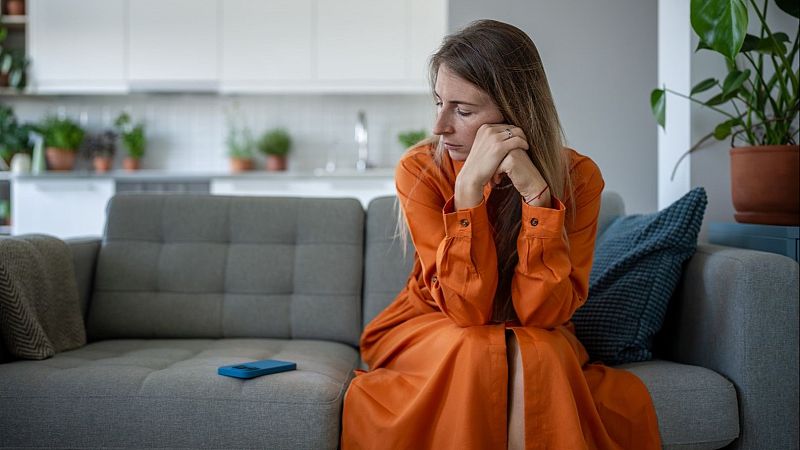
A smartphone app could equip people with the skills to overcome low-level depression, according to new research that suggests the devices often blamed for poor mental health could also be part of the solution.
Globally, an estimated 11 per cent of people have “subthreshold depression,” which is mild depression that doesn’t quite meet the criteria for major depressive disorder but can still have a serious impact on a person’s well-being.
Cognitive behavioural therapy (CBT), which focuses on helping people change and cope with their unhealthy thoughts and behaviours, is considered the gold standard for mental health treatment.
In many cases, it’s equally or more effective than medication. But with a shortage of psychiatrists around the world, demand for mental healthcare often outstrips supply.
CBT is ‘highly effective’ but scale is a challenge
The new study, which was published in the journal Nature Medicine, tested whether a CBT-focused smartphone app could be enough to help fill that gap.
The app focused on building five key CBT skills: getting people to do mood-boosting activities, rerouting the negative thoughts behind their feelings of depression, improving their problem-solving abilities, helping them articulate themselves without hurting other people’s feelings, and practicing techniques to ensure they get enough sleep.
“CBT is highly effective, but delivering it at scale has always been a challenge,” Toshiaki Furukawa, the study’s lead author and a professor at Tokyo University, said in a statement.
“Our goal was to make these skills available to anyone, anywhere”.
For the experiment, nearly 4,000 Japanese adults with subthreshold depression were randomly assigned to either use the app – or not use it.
Those with the app had access to different combinations of the CBT skills. They tended to stop using it after six to 10 weeks, once they had finished their lessons.
Those who used the app had better mental health afterward, with lower levels of depression, anxiety, and insomnia. The findings held up for six months, when the study ended.
Study’s noteworthy results
The results are notable because the evidence is mixed on whether CBT-focused apps can actually boost mental health.
In one analysis that pooled 24 studies, researchers concluded that short, phone-based interventions can help reduce symptoms of mental disorders.
But in another experiment funded by the European Union, automated self-help interventions did not improve people’s well-being – possibly because they focused on a low-risk group of university students with no history of major depression.
In the new study, some of the CBT skills were more effective for certain conditions than others.
For example, the mood-boosting and sleep-training elements were particularly helpful at curbing anxiety, improving sleep, and promoting positive mental well-being overall.
Meanwhile, the tools to correct people’s negative thoughts didn’t appear very effective.
The researchers are now preparing for a longer experiment that targets people’s specific mental health problems.
“We can use this knowledge to personalise and optimise which skills to administer for each individual to match their needs and characteristics,” Furukawa said.
“This opens the door to optimised, long-term support”.







